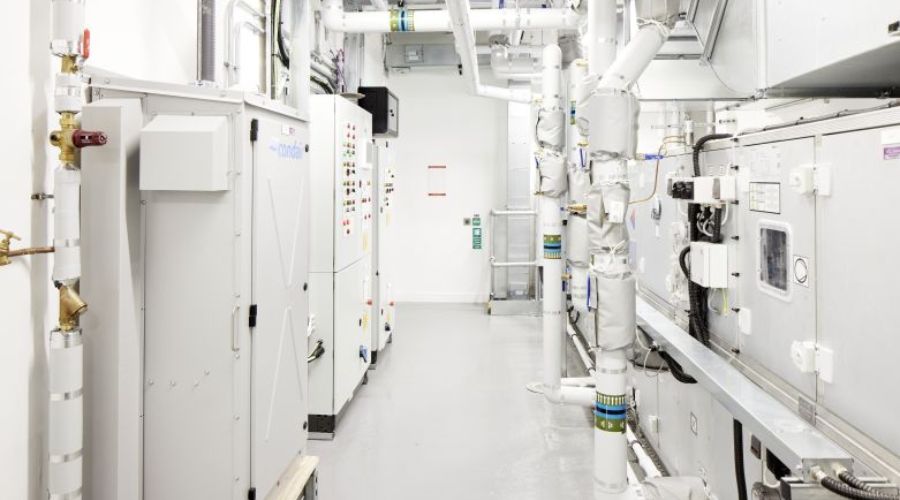VolkerFitzpatrick has completed a new research lab for University College London (UCL).

The £6.9 million Control Active Ventilation Environment lab (CAVE) in Dagenham observes and records climate and airborne hazards.
It is the first facility of its kind to carry out research into air quality and ventilation challenges in buildings – such as the effects of traffic pollution, infectious diseases or other airborne hazards.
The new facility can also help to ensure the UK is prepared for future virus outbreaks.
The two-storey building is constructed from a steel frame clad in composite cladding and rainscreen.
It has office and community space, kitchens, a lab, control rooms, and shower facilities.
Mechanical plant has been installed on the second floor and roof to control experimental conditions.
Thermal walls can control the temperature of the lab between -5 to more than 40 degrees.
The facility is due to be officially launched in early 2024.
It follows an initial investment of nearly £40 million in the Person Environment Activity Research Laboratory (PEARL) on campus.
“UCL has a strong tradition of tackling important challenges in engineering,” said Professor Nigel Titchener-Hooker, executive dean of UCL’s faculty of engineering.
“The CAVE laboratory follows UCL’s investment of £40M in PEARL, delivering a unique suite of facilities in Dagenham in terms of scale and their potential to help answer some of the big questions around how people interact with the built environment and how infrastructure design affects people.
“This is arguably one of the most pressing global concerns in light of our rapidly changing climate and the need to move to a low-carbon economy.”
Get industry news in 5 minutes!
A daily email that makes industry news enjoyable. It’s completely free.
